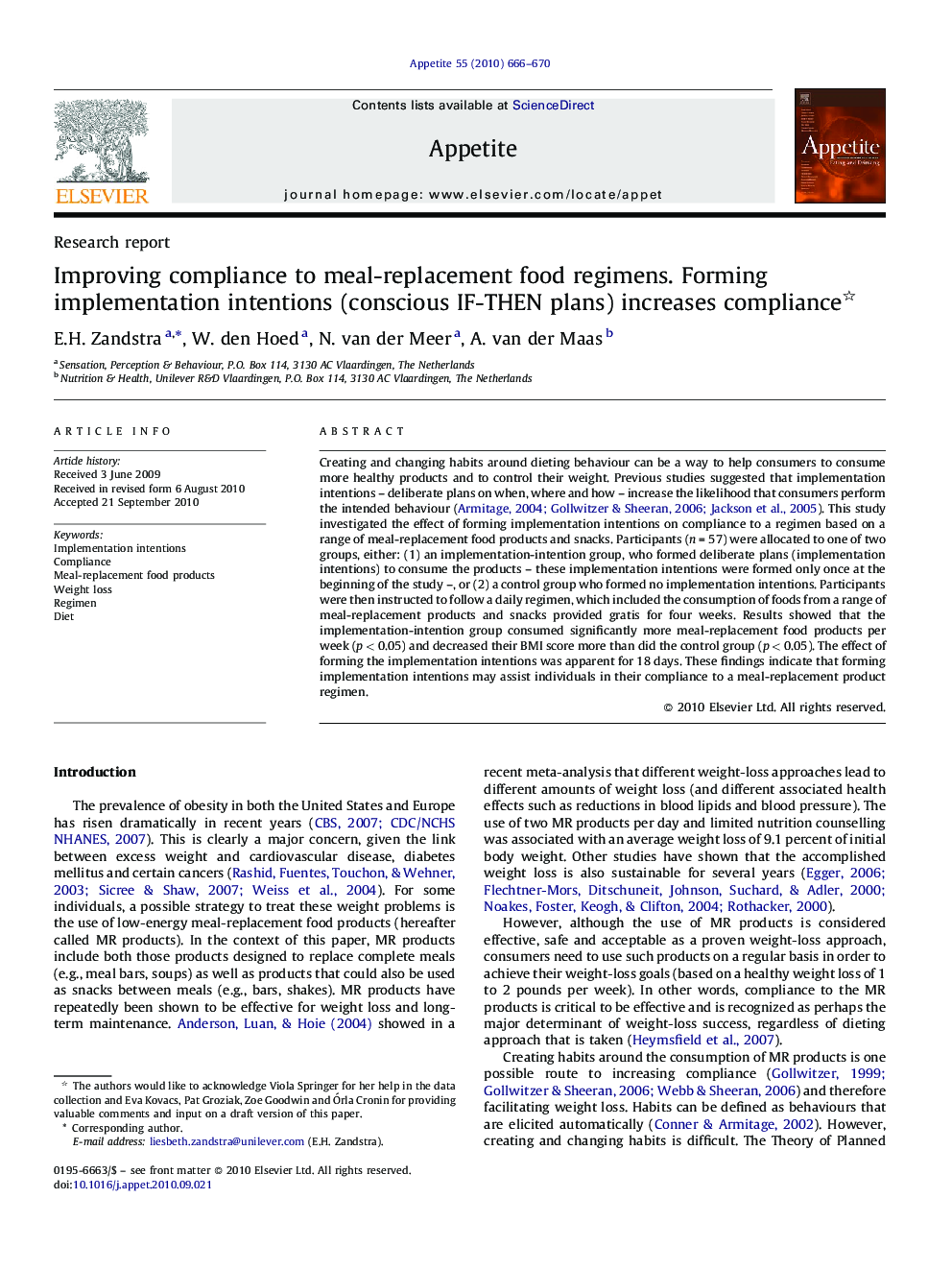| Article ID | Journal | Published Year | Pages | File Type |
|---|---|---|---|---|
| 940249 | Appetite | 2010 | 5 Pages |
Creating and changing habits around dieting behaviour can be a way to help consumers to consume more healthy products and to control their weight. Previous studies suggested that implementation intentions – deliberate plans on when, where and how – increase the likelihood that consumers perform the intended behaviour (Armitage, 2004, Gollwitzer and Sheeran, 2006 and Jackson et al., 2005). This study investigated the effect of forming implementation intentions on compliance to a regimen based on a range of meal-replacement food products and snacks. Participants (n = 57) were allocated to one of two groups, either: (1) an implementation-intention group, who formed deliberate plans (implementation intentions) to consume the products – these implementation intentions were formed only once at the beginning of the study –, or (2) a control group who formed no implementation intentions. Participants were then instructed to follow a daily regimen, which included the consumption of foods from a range of meal-replacement products and snacks provided gratis for four weeks. Results showed that the implementation-intention group consumed significantly more meal-replacement food products per week (p < 0.05) and decreased their BMI score more than did the control group (p < 0.05). The effect of forming the implementation intentions was apparent for 18 days. These findings indicate that forming implementation intentions may assist individuals in their compliance to a meal-replacement product regimen.
